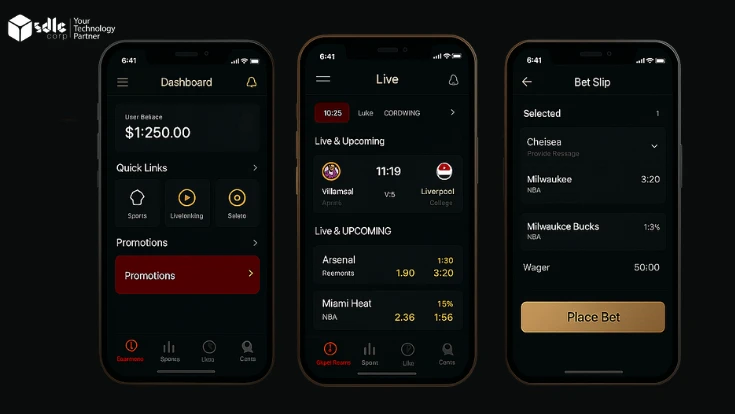The rapid evolution of mobile technology and digital payments has sparked significant growth in the online betting industry. Companies across the globe are racing to develop feature-rich, secure, and engaging betting apps to attract a diverse audience. One standout in this space is 12BET, known for its seamless interface, extensive sports markets, and real-time betting options. If you’re aiming to build a betting app like 12BET, this guide will walk you through the entire development process, highlight essential features, compliance requirements, and the best strategies to ensure your app not only competes but thrives.
Understanding the Market and Setting Goals
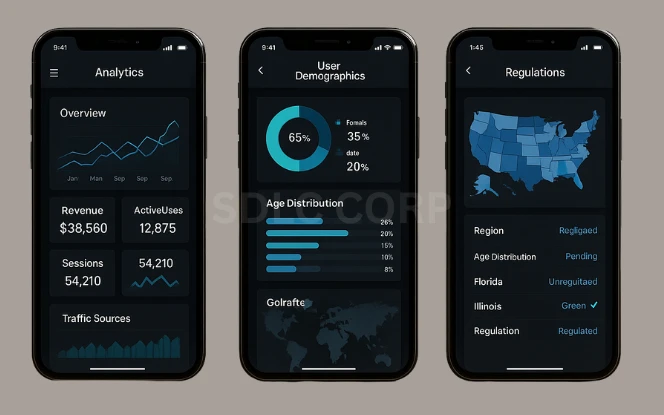
Before diving into development, a comprehensive market analysis is essential. Identifying your target audience, understanding regional regulations, and recognizing competitors’ strengths and weaknesses will help tailor your app to meet user expectations. A betting app like 12BET often succeeds because it offers a wide variety of sports options, quick transactions, and a user-centric experience.
Your primary goal should be to offer a secure and intuitive online betting app that builds trust with users. Features like live score and odds tracking, in-play betting options, and seamless wallet integration must be planned from the outset.
Key Features to Include in a Betting App Like 12BET
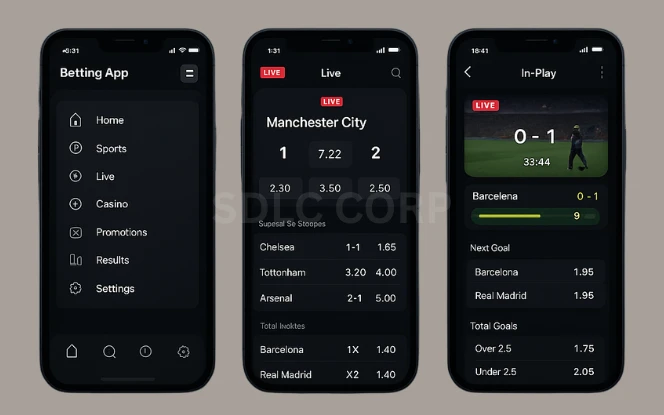
User-Friendly Interface
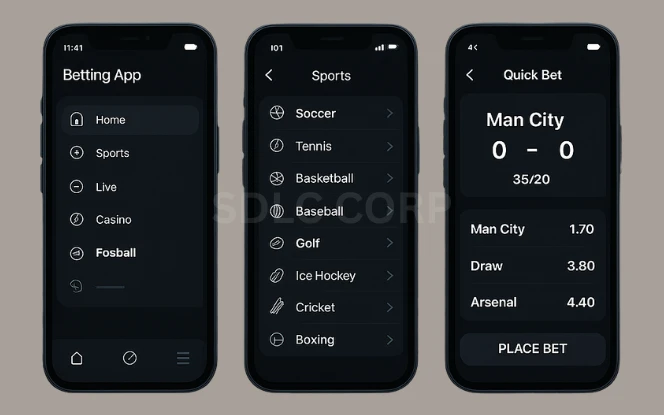
- A clean and easy-to-navigate UI is essential for a positive user experience.
- Users should be able to place bets seamlessly without confusion or delays.
- Quick access to match data ensures users can make informed decisions.
- Account details should be easily viewable and manageable.
- Intuitive navigation enhances user retention and keeps users engaged.
- A well-structured interface helps minimize bounce rates, leading to higher user satisfaction.
Live Score and Odds Tracking
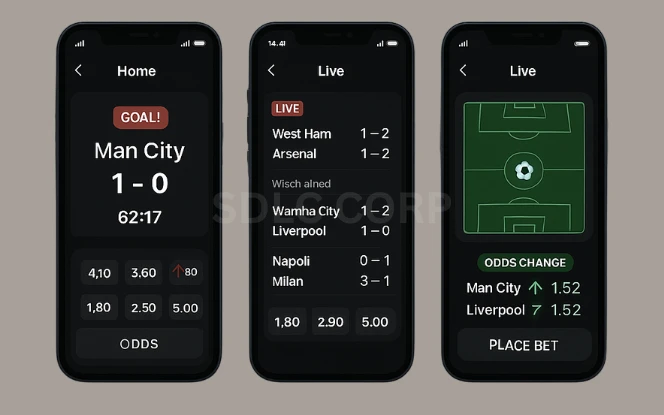
- Real-time updates are essential for maintaining user engagement and trust.
- Providing live score tracking keeps users informed about ongoing events.
- Live odds tracking helps users react quickly to changing scenarios.
- This feature is crucial for live or in-play betting, where every second counts.
- Timely, accurate data empowers users to make better, more confident betting decisions.
In-Play Betting App Functionality
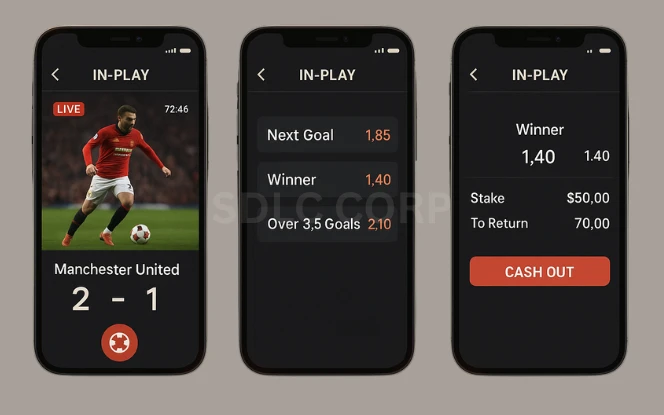
- Live or in-play betting enables users to place bets while an event is actively happening.
- It adds a layer of excitement and real-time engagement to the betting experience.
- Offers greater flexibility, allowing users to adapt their bets based on live developments.
- Enhances user interaction by introducing dynamic betting options, such as:
- Betting on the next goal scorer in a football match
- Predicting the outcome of the next play or set in other sports
- Betting on the next goal scorer in a football match
- This feature keeps users actively involved throughout the event rather than only pre-match.
Multi-Platform Support
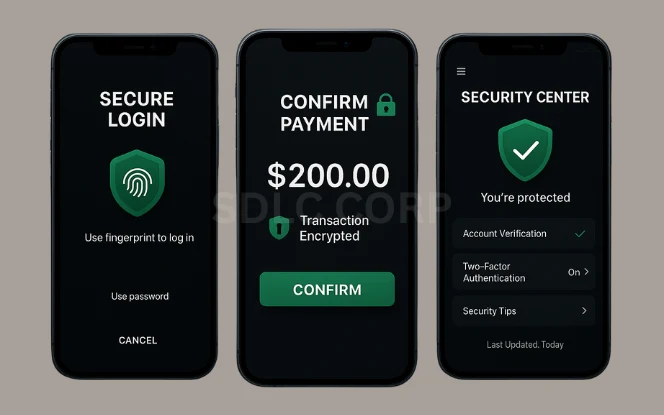
- Support both iOS and Android platforms to maximize user reach and accessibility.
- Give equal focus to iOS betting app development and Android betting app solutions.
- Recognize that each platform has distinct development guidelines and requirements.
- Tailor the user experience to meet the expectations of both iOS and Android users.
- Ensuring compatibility across platforms enhances market penetration and user satisfaction.
Robust Security Measures
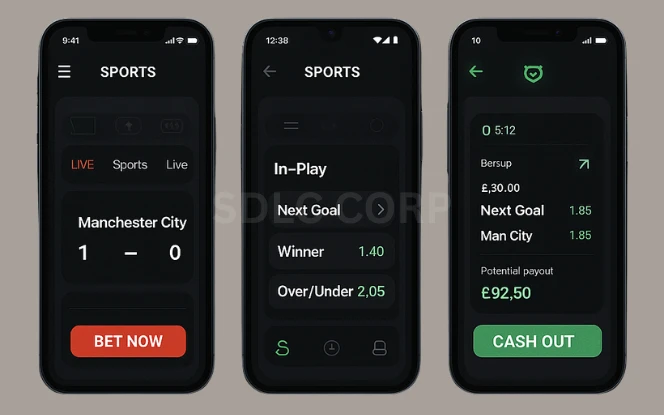
- Security is non-negotiable in betting app development.
- Implement end-to-end encryption to safeguard user data during transmission.
- Use two-factor authentication (2FA) to enhance account protection and prevent unauthorized access.
- Integrate secure and trusted payment gateways to protect financial transactions.
- Prioritize data privacy and compliance with relevant regulations (e.g., GDPR, PCI-DSS).
Licensed Betting Platforms
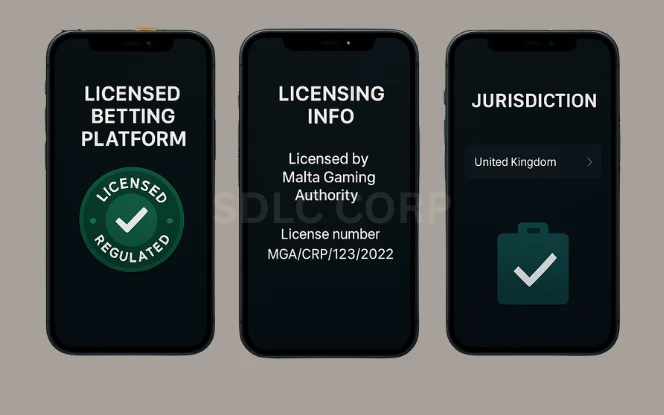
- Operating within legal boundaries is crucial for long-term success.
- Ensure your app is integrated with licensed betting platforms only.
- Partner with platforms recognized by official regulatory authorities.
- Compliance with local and international laws helps avoid legal issues.
- Legal operation builds user trust and reinforces your platform’s credibility.
Betting Compliance Software
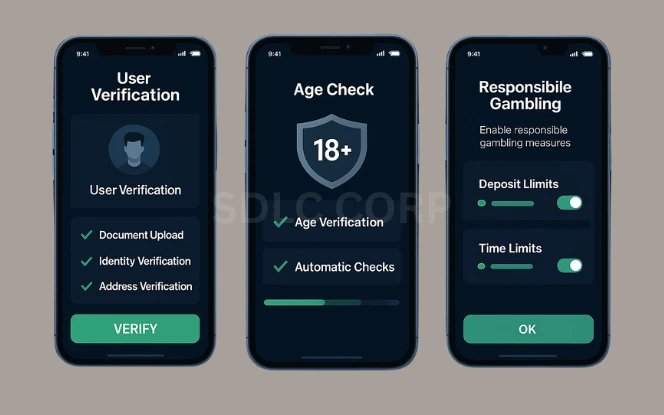
- Incorporating betting compliance software ensures adherence to regional gambling laws and regulations.
- It automates critical checks such as:
- Age verification to restrict underage users.
- Responsible gambling controls to protect vulnerable users.
- Anti-money laundering (AML) protocols to detect and prevent illicit activities.
- Helps reduce the risk of legal penalties and regulatory violations.
- Boosts operational transparency and strengthens platform credibility.
Development Process Breakdown
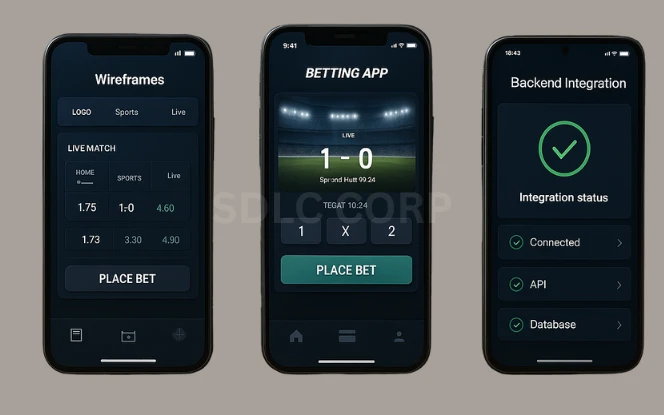
Step 1: Planning and Documentation
- Begin with a detailed requirements analysis to lay a strong foundation.
- Clearly identify must-have features for your betting app.
- Determine necessary third-party integrations (e.g., payment gateways, data providers).
- Define the type of sports markets you plan to offer (e.g., football, cricket, esports).
- Create comprehensive documentation to guide the entire development process.
- Early clarity ensures efficient planning, execution, and fewer revisions later.
Step 2: UI/UX Design
- Create wireframes and mockups to visualize the app’s structure and user flow.
- Define the interface layout for smooth and intuitive navigation.
- A well-designed UI/UX enhances overall usability and user satisfaction.
- Design consistency helps establish a strong and recognizable brand identity.
- Early visualization allows for better stakeholder feedback and refinement.
Step 3: Choosing a Tech Stack
- Select technologies based on your target platform and performance goals.
- For iOS app development, use Swift or Objective-C.
- For Android app solutions, opt for Java or Kotlin.
- Choose backend technologies such as:
- Node.js for high scalability and real-time capabilities
- Python for rapid development and readability
- Ruby for simplicity and convention-based coding
- Node.js for high scalability and real-time capabilities
- Align technology choices with your app’s scalability, performance, and maintenance needs.
Step 4: Backend Development
- Focus on designing robust database structures to manage user data, bets, and transactions.
- Develop efficient server-side logic to handle core app functionalities and business rules.
- Implement API integrations for services like payment processing, sports data feeds, and user authentication.
- Build real-time features, including:
- Live odds updates
- Match score tracking
- Live odds updates
- This stage ensures your app is functional, responsive, and ready for dynamic user interaction.
Step 5: Frontend Development
- This phase brings the user interface (UI) to life with interactive components.
- Incorporate all planned features into the front-end design.
- Key features to integrate include:
- Live score and odds tracking for real-time updates
- Betting slips for easy bet management
- In-play betting functionalities for dynamic user engagement
- Live score and odds tracking for real-time updates
- Ensure the UI is intuitive, responsive, and visually aligned with your brand.
- Focus on delivering a seamless user experience across all devices.
Step 6: Integration of Compliance Features
- Integrate betting compliance software to automate regulatory checks and safeguards.
- Ensure your app aligns with the standards of licensed betting platforms.
- Key compliance elements include:
- Data encryption to protect user information
- User identity verification for age and KYC compliance
- Financial reporting systems for audit trails and transparency
- Data encryption to protect user information
- Meeting these requirements helps ensure legal operation and user trust.
Step 7: Testing
- Conduct comprehensive testing to ensure seamless app performance.
- Test across all devices and screen sizes for compatibility.
- Simulate various network conditions to ensure reliability under real-world scenarios.
- Perform key testing types, including:
- Functional testing to verify core features work as intended
- Performance testing to assess speed, responsiveness, and load handling
- Security audits to identify and fix vulnerabilities
- Functional testing to verify core features work as intended
- Thorough testing ensures a stable, secure, and user-friendly betting experience.
Step 8: Deployment
- After successful testing, proceed with app deployment to target platforms.
- Submit the app to the respective app stores (Apple App Store and Google Play Store).
- Follow each platform’s submission guidelines carefully to avoid delays or rejections.
- Ensure all app assets, metadata, and compliance checks are in place before submission.
- Proper deployment marks the official launch and makes the app accessible to users.
Step 9: Post-Launch Support and Updates
- Perform continual monitoring to track app performance and detect issues in real time.
- Collect and analyze user feedback to understand pain points and improve user experience.
- Release regular updates to add new features, enhance security, and fix bugs.
- Keep up with market trends and compliance changes to stay competitive.
- Ongoing optimization ensures your app remains relevant, secure, and user-focused.
How to Promote a Betting App
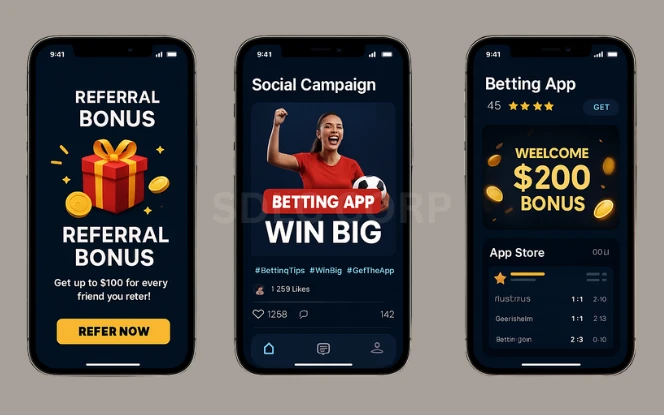
Creating a great app is only half the battle. You need a robust marketing strategy to gain traction. Understanding how to promote a betting app involves multiple channels and techniques.
- App Store Optimization (ASO): Optimize your app title, description, and tags with relevant keywords.
- Content Marketing: Blog posts, tutorials, and industry news can drive organic traffic to your app.
- Influencer Partnerships: Collaborate with sports influencers to reach a targeted audience.
- Social Media Campaigns: Run contests, live events, and updates through platforms like Twitter, Instagram, and Facebook.
- Referral Programs: Encourage users to refer friends by offering bonuses or free bets.
Monetization Strategies for Betting Apps
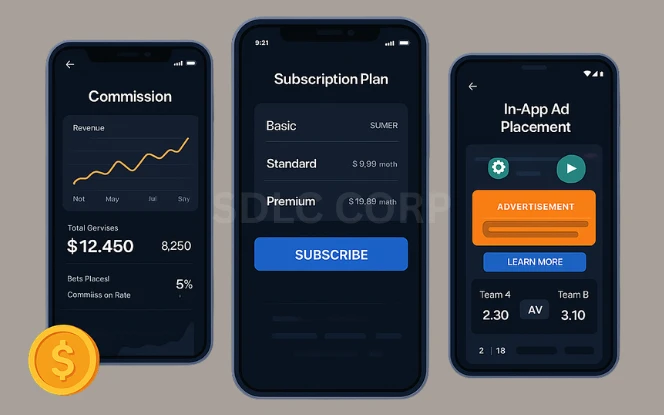
Monetization is the backbone of sustainability. Implementing the right monetization strategies for betting apps can generate consistent revenue.
- Commission-Based Model: Earn a percentage of each bet placed through the platform.
- Subscription Plans: Offer premium features like expert predictions and detailed analytics.
- In-App Advertising: Display ads from relevant brands or sportsbooks.
- Affiliate Marketing: Partner with casinos or betting companies for referral commissions.
Challenges and Solutions
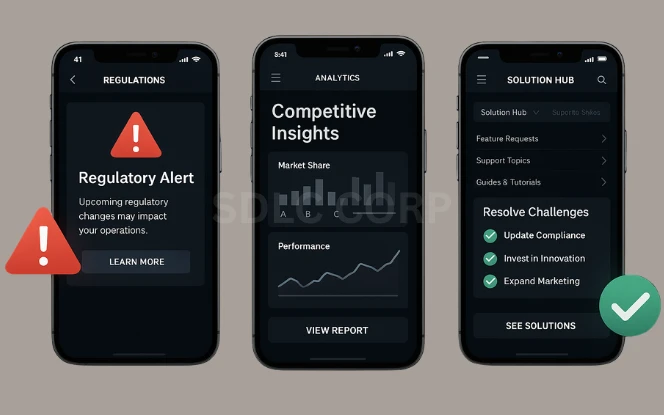
Regulatory Hurdles
- Navigating the legal landscape of online betting is complex and ever-changing.
- Stay updated with international and regional gambling laws to ensure compliance.
- Use betting compliance software to automate regulatory checks and reduce risks.
- Regular legal audits help maintain transparency and operational integrity.
- Proactive compliance ensures your platform remains legally secure and trustworthy.
High Competition
- Standing out in a saturated market requires innovation and differentiation.
- Incorporate unique features to capture user attention and interest.
- In-play betting offers dynamic engagement during live events.
- Live score and odds tracking keeps users informed in real-time.
- These features can set your app apart from competitors and boost user retention.
Payment Integration
- Users expect fast and secure payment options for smooth transactions.
- Integrate multiple trusted payment gateways to offer flexibility.
- Support for cryptocurrency wallets caters to modern and tech-savvy users.
- Diverse payment options enhance the overall user experience and satisfaction.
- Ensures quick deposits and withdrawals, increasing user engagement and retention.
User Trust
- Transparency in operations fosters confidence and credibility among users.
- Ensure your platform has proper licensing from recognized regulatory authorities.
- Consistent app performance builds reliability and enhances the user experience.
- Together, these factors contribute to long-term user trust and platform loyalty.
Conclusion
Developing a betting app like 12BET requires a blend of technical expertise, legal awareness, and marketing finesse. From incorporating advanced features like live score and odds tracking to ensuring compliance through licensed betting platforms and betting compliance software, every step must be meticulously planned. Equally important is knowing how to promote a betting app effectively and implementing solid monetization strategies for betting apps. With the right approach, your online betting app can attract a loyal user base and secure a strong position in the competitive betting market.
Contact us today to schedule a consultation with our experts and get started on your custom betting app development journey.
FAQ’s
1. What Are the Key Features Needed in a Betting App Like 12BET?
A successful betting app should include features like user-friendly navigation, in-play betting options, live score and odds tracking, secure payment gateways, multi-platform support (iOS and Android), and robust compliance with gambling regulations.
2. Is It Legal to Develop and Launch an Online Betting App?
Yes, but legality depends on your target region. You must comply with local laws and obtain necessary licenses. Using licensed betting platforms and integrating betting compliance software is essential to ensure legal operation.
3. How Much Does It Cost to Develop a Betting App Like 12BET?
The development cost varies based on complexity, features, platform support, and team location. On average, it can range from $25,000 to $150,000+, depending on customization and scalability.
4. What is in-play Betting, and Why is It Important?
In-play betting allows users to place bets while a match or event is ongoing. It adds excitement and offers more engagement opportunities, making it a must-have feature for any modern betting app.
5. Should I Launch the App on Both Android and IOS Platforms?
Absolutely. To maximize your reach and user acquisition, developing for both platforms through iOS betting app development and Android betting app solutions is highly recommended.
6. How Can I Ensure the App Complies With Legal Standards?
Use betting compliance software to manage regulatory requirements like age verification, anti-money laundering (AML) protocols, and responsible gambling practices. Consulting legal experts in gambling law is also advised.
7. How Do Betting Apps Make Money?
Betting apps monetize through models like commission per bet, subscription plans for premium features, in-app ads, and affiliate marketing with casinos or sportsbooks.
8. How Long Does It Take to Build a Betting App Like 12BET?
Development time typically ranges from 4 to 9 months, depending on app complexity, features, and development resources.
9. How Can I Promote My Betting App After Launch?
Leverage app store optimization (ASO), influencer marketing, content creation, social media campaigns, and referral programs. Knowing how to promote a betting app is key to reaching and retaining users.
10. What Makes 12BET a Benchmark in Betting App Development?
12BET stands out for its clean user interface, vast sports coverage, real-time data integration, fast transactions, and trust through legal compliance—an ideal model for aspiring betting app developers.

